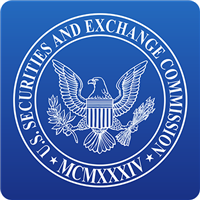SEC Calls for Further Powers From Congress to Regulate Crypto Trading and Platforms

Gary Censler, the chair of the US Securities and Exchange Commission (SEC), has recently called on Congress for further powers to regulate crypto trading and platforms.
In a response letter to Senator Elizabeth Warren, who wrote to the SEC chairman last month asking for Gensler’s input on what congressional authorization the SEC needs to handle crypto, Gensler said that the SEC needs additional authorities to prevent transactions, products, and platforms from falling between regulatory cracks.
“In my view, the legislative priority should center on crypto trading, lending, and DeFi platforms,” Gensler said. “We also need more resources to protect investors in this growing and volatile sector. In my view, the legislative priority should center on crypto trading, lending, and DeFi platforms. Regulators would benefit from additional plenary authority to write rules for and attach guardrails to crypto trading and lending. We stand ready to work closely with Congress, the Administration, our fellow regulators, and our partners around the world to close some of these gaps.”
Reacting to the news, Shyft’s Co-Founder, Juan Aja Aguinaco, has shared his thoughts below.
- What’s the likely timeframe for, and shape of, any new US regulation? What are its prospects for passing Congress/Senate?
It’s important to first understand that crypto regulation encompasses different key areas, i.e., tax, anti-money laundering, securities, financial, environmental, etc.
It’s tough to set a timeframe for new Crypto-specific regulation as it has been “in process” for several years. For example, the Financial Action Task Force has been evaluating updates to its own guidance for more than two years and has openly called out how long most jurisdictions, including the US, are taking in implementing crypto-specific guidance into their own Anti-Money Laundering regulation. For regulation to enter a “fast-track”, it requires a broader interest and bi-partisan support.
The Infrastructure bill, for example, had a much broader purpose behind it: to substantially increase tax revenue for the Biden administration and help fund infrastructure development without having to raise tax rates. Unfortunately, a thriving and innovative crypto industry was not given priority over military spending and, now, the bill has what could be unenforceable, and possibly unconstitutional legislation.
There is a clear intention from legislators to adopt regulation; the question is whether it will restrict innovation and set the US back in terms of competitiveness. Crypto adoption in the US should be a clear incentive for centralized exchanges and other virtual asset service providers to adapt and improve their practices and services.
- Regulators have in recent weeks put pressure on global crypto platforms such as Binance. What impact would US regulation on crypto have on the business model of such platforms? – What sway do US regulators have over such platforms at the moment, especially when the location of the entities behind websites and platforms is not clear?
Centralized exchanges have three paths in front of them: to comply, to leave the market, or to stay and brace for sanctions. All three options present substantial challenges, e.g., the cost to make the entire operation fully compliant and invest in data protection infrastructure to guarantee users’ privacy, or the cost of blocking an important part of the global crypto market from participating in the product offering. We’ve seen this happen in Canada already, where the Ontario Securities Association initiated procedures against some of the industry’s largest exchanges and these, in turn, decided to stop providing services to Canadians.
Centralized exchanges, at one point or another, interact with other regulated entities, e.g., financial institutions, and provide services to individuals in jurisdictions that have more restrictive regulation, it’s inevitable. These interactions are the “weak points” in the jurisdiction-shopping strategy that some of these exchanges employ to avoid compliance. At the end of the day, exchanges that aim at mass-market adoption, at competing at a global level, will have to face regulation; it’s unavoidable.
- What legislative tools would national financial regulators need to increase their ability to compel platforms/exchanges based overseas but serving customers online to boost transparency/compliance with rules?
Regulators already have multiple tools at hand to enforce existing legislation. The SEC, for instance, has collaboration agreements with multiple securities regulators in other countries to share information and prosecute securities fraud. FinCEN has a Global Investigations Division solely focused on identifying international money-laundering and terrorist-financing threats under the Bank Secrecy Act. The challenge they face is how to use these tools, designed for a crypto-less world, on decentralized technologies.
Regulation must come from knowledge of the system’s capabilities. Senator Warren’s missguided statements on the environmental impact of Proof-of-Work consensus mechanism completely missed the fact that there are studies that show that the majority of energy that powers POW comes from renewable sources. The industry has already produced blockchain analysis tools to help transactions be more transparent. Financial regulators need properly educated legislators if they want to have access to regulatory tools that enable enforcement.
Source: Read Full Article
